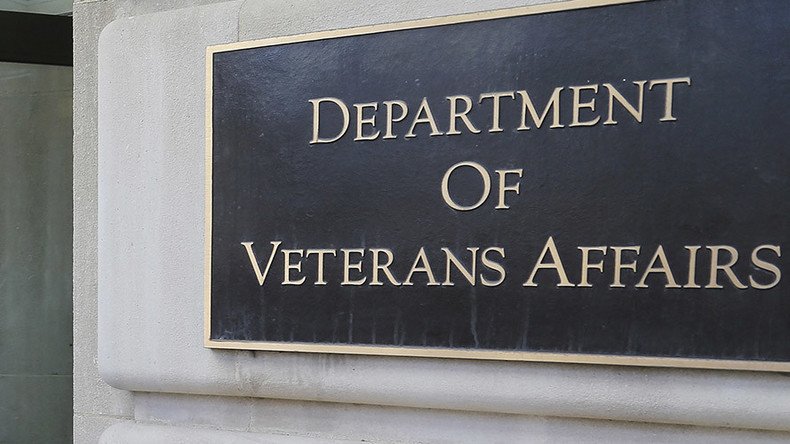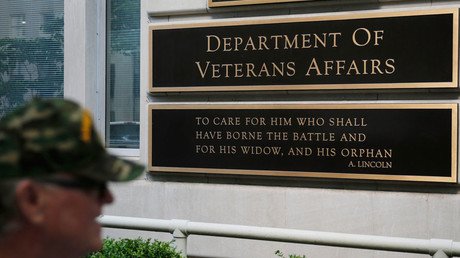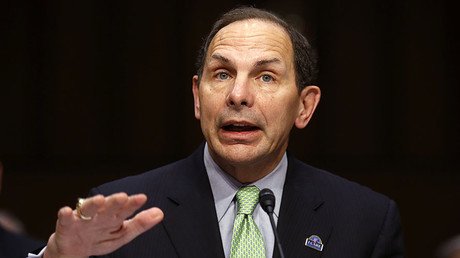‘Systemic failures’ at Wisconsin Veterans Affairs hospital – Senate report

A Senate report blamed the US Department of Veterans Affairs for over-prescribing narcotics for patients with PTSD at a Wisconsin veterans’ hospital and actions taken by the VA's inspector general in response to allegations of wrongdoing.
A new report by the Senate Homeland Security and Governmental Affairs Committee, released Tuesday, found that the VA failed to properly respond to accusations that physicians at the Tomah, Wisconsin VA Medical Center were over-prescribing powerful opiates to veterans who came to the hospital for treatment of post-traumatic stress disorder (PTSD). VA officials were also criticized for intimidating whistleblowers who raised concerns.
“The over-prescription, retaliation, veterans’ deaths, and abuse of authority at the Tomah VAMC did not occur in a vacuum," the committee report said. "Veterans, employees, and whistleblowers tried for years to get someone to address the problems. Along the way, since at least 2004, there were several opportunities when federal agencies could have investigated further or taken direct action. At each step, however, these opportunities were missed. The tragedies that occurred at the Tomah VAMC were preventable and were the result of systemic executive branch failures."
.@SenRonJohnson presiding over hearing on Tomah VA "systemic failures" found in Senate HSGAC report released today. https://t.co/hhzMe4NZ5C
— Greg Neumann (@gneumann_wkow) May 31, 2016
In 2011, the inspector general's office at the VA began a lengthy investigation into accusations that opiates were prescribed in dangerous combinations by hospital chief of staff Dr. David Houlihan – nicknamed “Candy Man” for the amount of pills he issued – and nurse practitioner Deborah Frasher. The investigation lasted until 2014 but did not include a finding on whether Houlihan or Frasher had committed any wrongdoing regarding the over-prescription or mixing of drugs. The inspector general’s office only said that there were “potentially serious concerns" about any abuse of narcotic distribution. Kept secret at first, the inspector general’s report was only released publicly in 2015, according to the Senate investigation.
The VA inspector general's investigation represented "perhaps the greatest failure to identify and prevent the tragedies at the Tomah VAMC," the Senate committee report said.
Alan Mallinger, a physician with the VA inspector general's office, led the investigation beginning in 2012. He has said that the issue of prescriptions that involved opiates mixed with other potentially dangerous drugs was not within the scope of his probe.
“The allegation that we had was that he was using opioids to treat PTSD, and that was the allegation we looked at,” Mallinger told the Senate committee, according to the USA Today.
One patient, Jason Simcakoski, a 35-year-old Marine Corps veteran, died five months after the inspector general’s office addressed local VA officials on its investigation findings, which had yet to be released to the public. Simcakoski died of “mixed drug toxicity” at Tomah, only days after Houlihan added an opiate to 14 other drugs he had been prescribed.
Following reports of Simcakoski's death, the VA again investigated Tomah, eventually firing Houlihan and Frasher as well as the hospital's director. The death of one other patient, Kraig Farrington, was blamed on over-prescription issues, the report said.
“In just three months, the VA investigated and substantiated a majority of the allegations that the VA (office of the inspector general) could not substantiate after several years,” the Senate committee report said.
The committee also faulted the VA for alleged retaliation fears among employees who voiced concern about the prescription policies at the hospital. The report said that two employees were fired from the Tomah hospital after they complained. One of the employees, staff psychologist Dr. Chris Kirkpatrick, later committed suicide.
Veterans Affairs Paid Out $338 Million In Legal Settlements Just For 2015 https://t.co/ZvAYn1wseQ#VA
— Fox Nation (@foxnation) May 31, 2016
On Tuesday, the Senate committee held a hearing on the report. Aside from analyzing the "troubled history of the Tomah VA," committee chairman Ron Johnson said another goal of the hearing was to look forward.
"Wrongdoers at the facility level and in Washington have been held accountable," he said in his opening statement. "Now it is vital that we enact necessary reforms to prevent tragedies like what occurred at the Tomah VA from ever happening again."
















